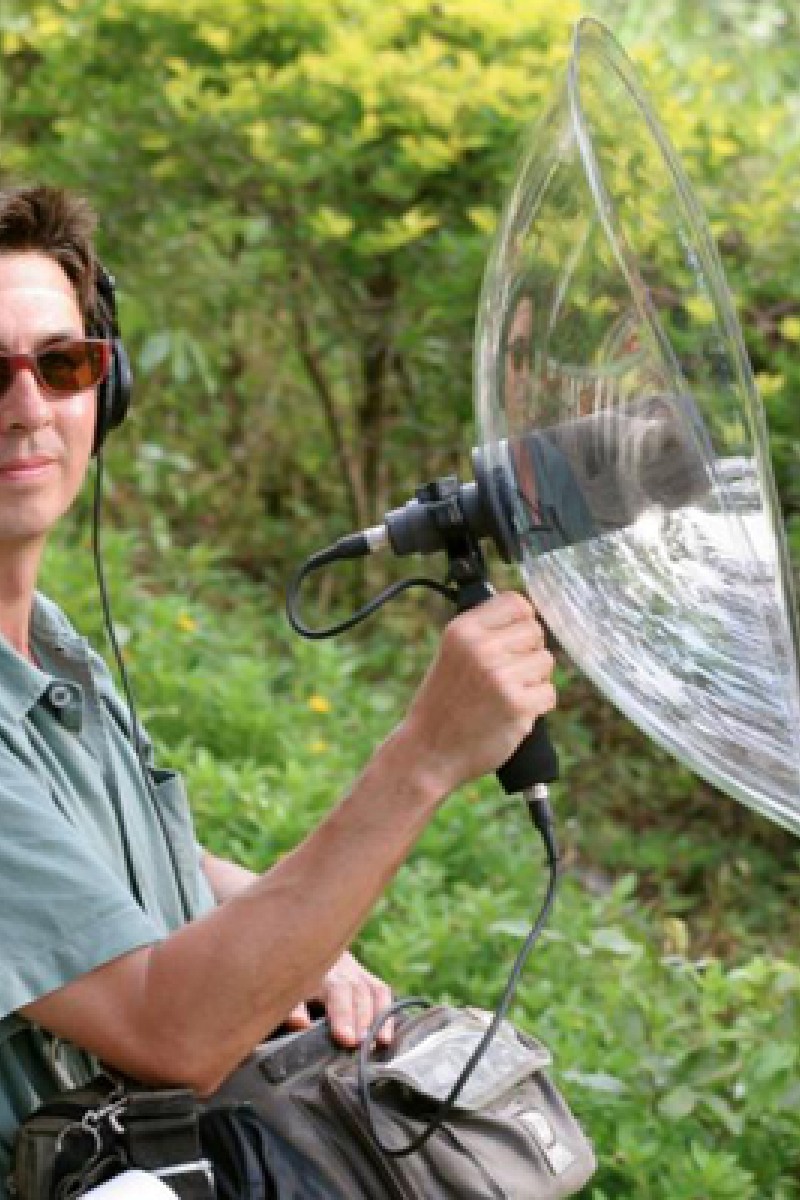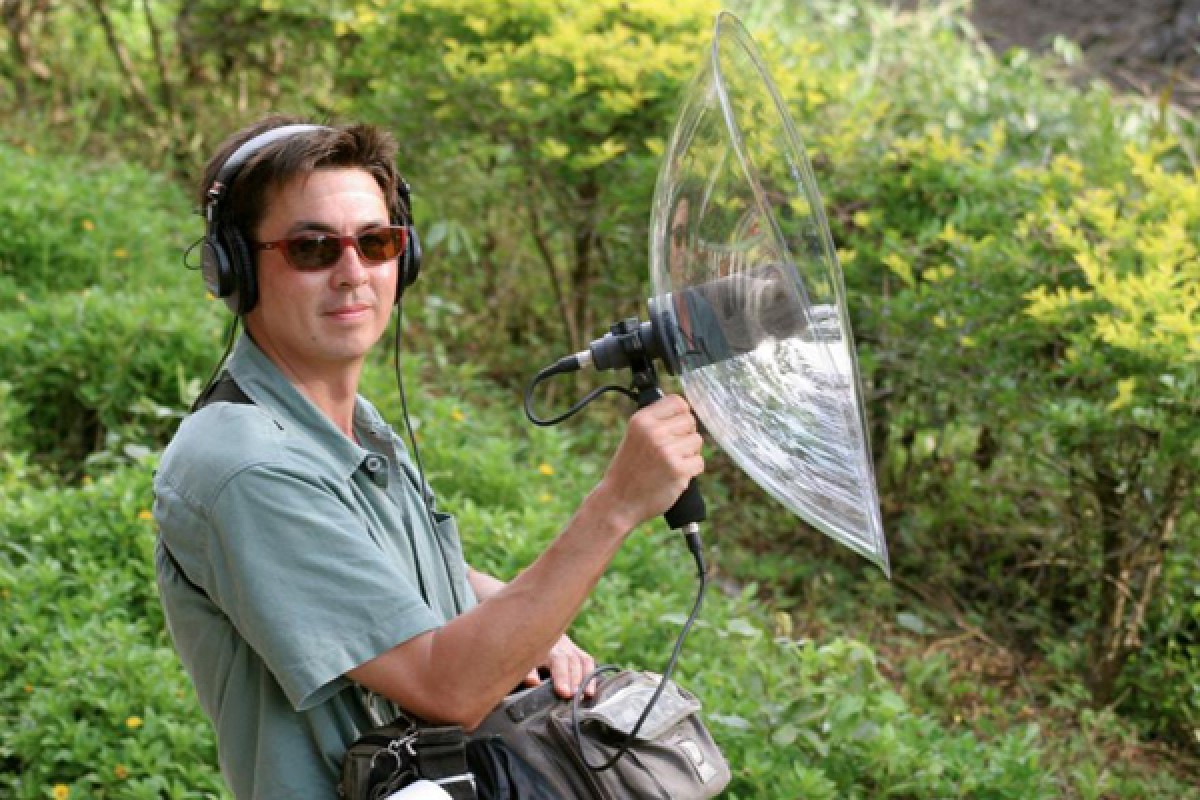
Sound recordist and Wildscreen Award winner Mark Robert spoke to Young Post about his career, and what it takes to succeed in his line of work

 Mark Roberts uses a parabolic reflector microphone to record bird calls during a trip to Sabah, in Malaysia.
Mark Roberts uses a parabolic reflector microphone to record bird calls during a trip to Sabah, in Malaysia.Audio. Some call it “the dark arts”, the corner of broadcasting few understand. However, this seemingly simple task is far more difficult than many people realise, despite it being an essential part of television broadcasting.
So, what’s it like in a day in the life of a professional recordist? And, what exactly does it take to become one in the first place?
Young Post spoke to Mark Roberts, a Wildscreen Award-winning sound recordist who has worked with companies like BBC to produce a range of wildlife and geographical documentaries over the course of his 20-year career.
Roberts says being a recordist requires strong problem-solving skills and the ability to work with all kinds of people, regardless of their mood or ego, to get the job done.
As he works mainly on wildlife documentaries, Roberts frequently travels to remote locations where there is little or no contact with the outside world and, therefore, can be dangerous.
He recalls going to Papua New Guinea to film Lost Land of the Volcano with a BBC crew and insect expert Dr George McGavin. He was tasked with exploring and recording footage on the caldera of an extinct volcano, which was only accessible by helicopter. Bad weather delayed their assignment and, to their dismay, they had left most of their supplies on the helicopter. They had no food, no sleeping bags, and no way of contacting base camp.
“It was absolutely freezing,” says Roberts. “Fortunately, I was taking a walk along the caldera and on the way I saw a telecommunications transmitter. I was like ‘Aha! I can rig this to contact base camp.’”
It was mainly thanks to Roberts’ knowledge of audio equipment and improvisation skills that he and his team were able to get home safely. For instance, he used McGavin’s iPhone headphones and makeshift wires to create a circuit which connected to the transmitter.
Being a sound recordist also requires great patience, says Roberts. During one of his first trips, he and his crew were sent to Borneo to track and record male orangutan calls in Tanjung Puting National Park. The males’ “long call” is a deep, primal shout used to impress females and keep rival males away. Male orangutans weigh around 150 kilograms and have incredible strength, so the crew had to keep their distance. So, filming these kinds of animals requires waiting, and lots of it.
“You have to let the animals do their thing and react to film things naturally,” explains Roberts. “There was a lot of sitting around in humid and hot weather with mosquitoes everywhere.”
Despite long waits, danger is ever-present. Once, when Roberts was checking on his equipment, an orangutan snuck up on him to give him a “big hug”. It was friendly, but the creature’s strong grip began to tighten, and Roberts feared for his life. Fortunately, park rangers came and lured the animal away with fruits, and he was able to escape unharmed.
But for someone as passionate about his work as Roberts, the job is worth the many perilous situations he has faced. He recalls that he first wanted to become a recordist when he was just six years old after watching the filming of The Muppet Show in a studio. Also, the fact that he helped his godfather, a musician, set up equipment at his recording studio was another notable instance in his life.
While studying English literature at university, Roberts got more in touch with his artistic side and gained access to the entertainment industry. He joined a university film crew which produced monthly performance videos known as Sketchpads. Afterwards, he was accepted into a BBC training programme focused on sound production and scripting.
Roberts recalls a BBC recordist inviting him to visit the studio for the first time. “I asked everyone about everything they did, even the boy serving refreshments to the crew,” he says. That same recordist went on to offer him a part-time job, which eventually turned into a full-time gig.
“Looking back, I was extremely lucky to have a group of mentors, very experienced sound engineers who made sure I got the very best training during my time with them,” says Roberts. “They gave me opportunities to try and do things on my own. They saw potential in me and they saw that I was passionate about my work. I’m extremely grateful to them and for having the career of my dreams.”
Edited by Ben Young
